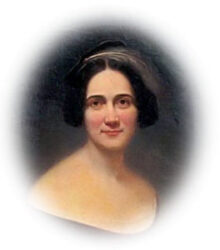June 4th.–Battles occur near Richmond, with bombardment of Charleston. Beauregard is said to be fighting his way out or in.
Mrs. Gibson is here, at Doctor Gibbes’s. Tears are always in her eyes. Her eldest son is Willie Preston’s lieutenant. They are down on the coast. She owns that she has no hope at all. She was a Miss Ayer, of Philadelphia, and says, “We may look for Burnside now, our troops which held him down to his iron flotilla have been withdrawn. They are three to one against us now, and they have hardly begun to put out their strength–in numbers, I mean. We have come to the end of our tether, except we wait for the yearly crop of boys as they grow up to the requisite age.” She would make despondent the most sanguine person alive. “As a general rule,” says Mrs. Gibson, “government people are sanguine, but the son of one high functionary whispered to Mary G., as he handed her into the car, ‘Richmond is bound to go.'” The idea now is that we are to be starved out. If they shut us in, prolong the agony, it can then have but one end.
Mrs. Preston and I speak in whispers, but Mrs. McCord scorns whispers, and speaks out. She says: “There are our soldiers. Since the world began there never were better, but God does not deign to send us a general worthy of them. I do not mean drill-sergeants or military old maids, who will not fight until everything is just so. The real ammunition of our war is faith in ourselves and enthusiasm in our cause. West Point sits down on enthusiasm, laughs it to scorn. It wants discipline. And now comes a new danger, these blockade-runners. They are filling their pockets and they gibe and sneer at the fools who fight. Don’t you see this Stonewall, how he fires the soldiers’ hearts; he will be our leader, maybe after all. They say he does not care how many are killed. His business is to save the country, not the army. He fights to win, God bless him, and he wins. If they do not want to be killed, they can stay at home. They say he leaves the sick and wounded to be cared for by those whose business it is to do so. His business is war. They say he wants to hoist the black flag, have a short, sharp, decisive war and end it. He is a Christian soldier.”
